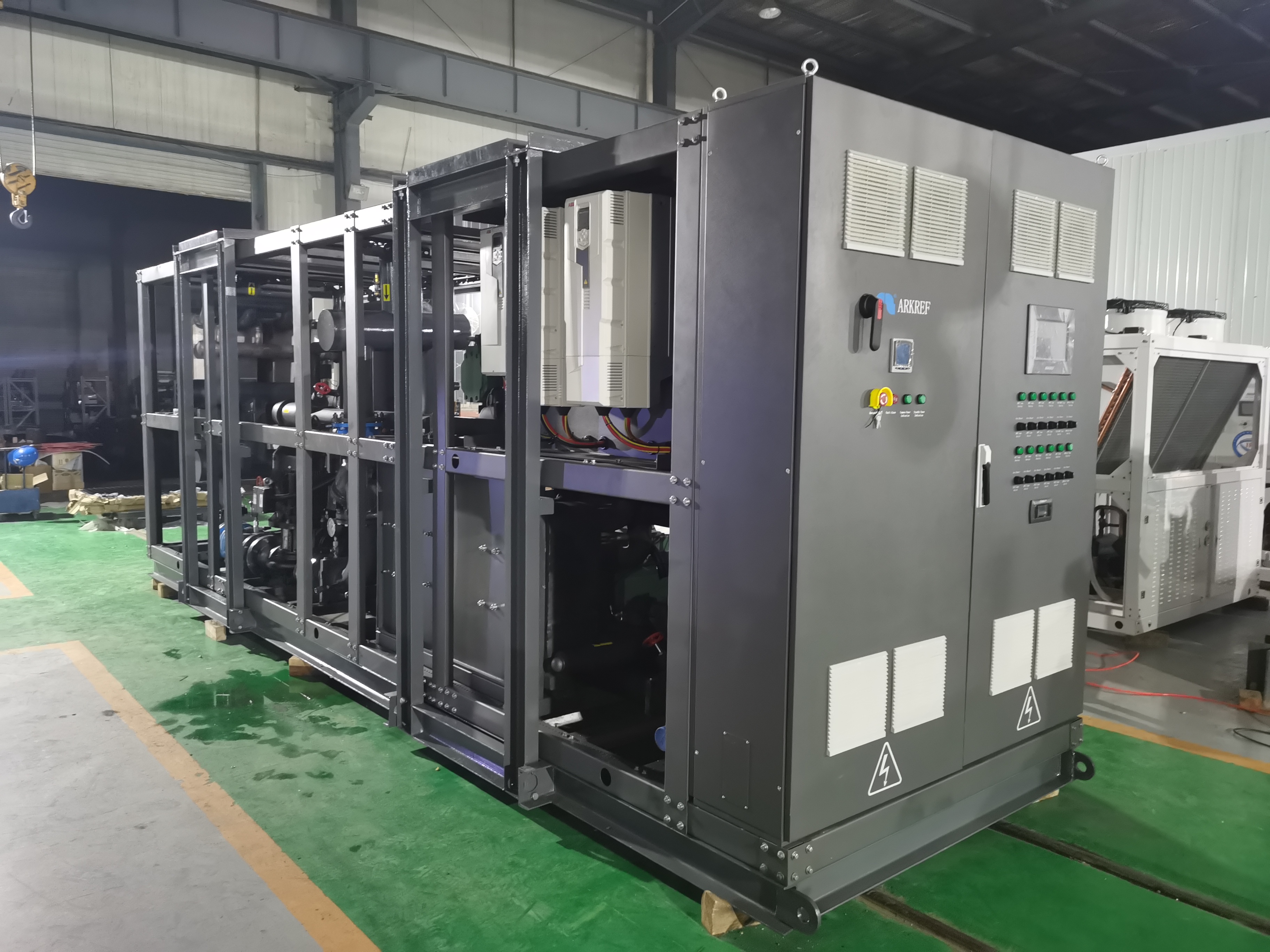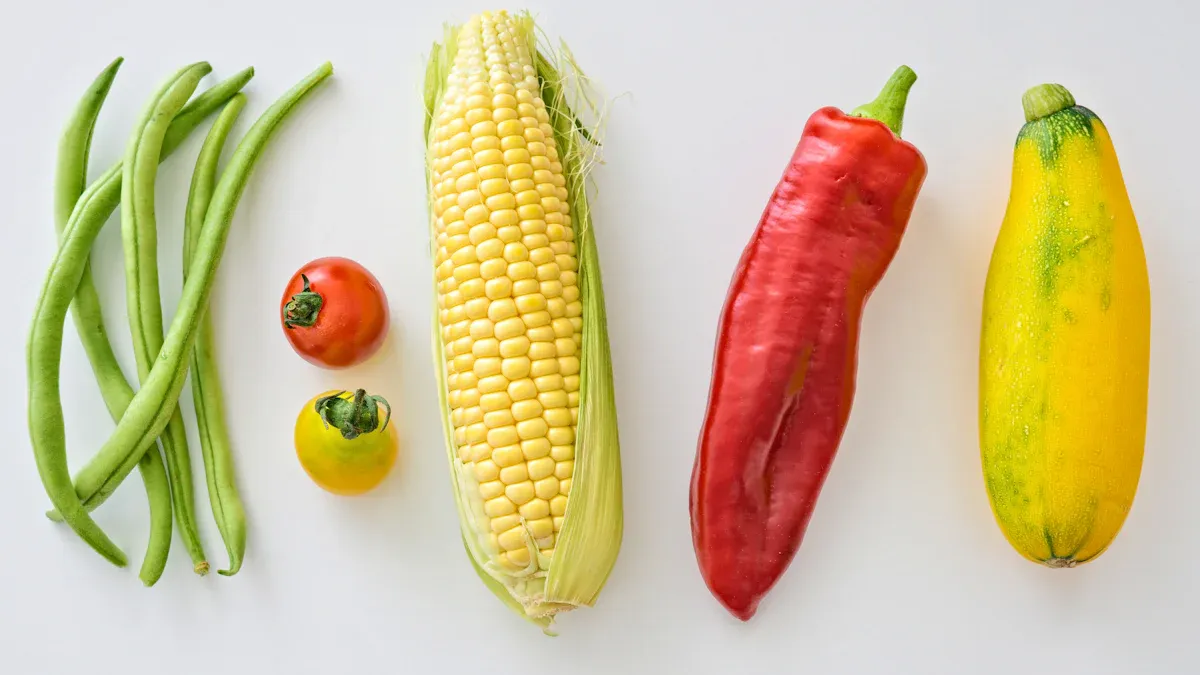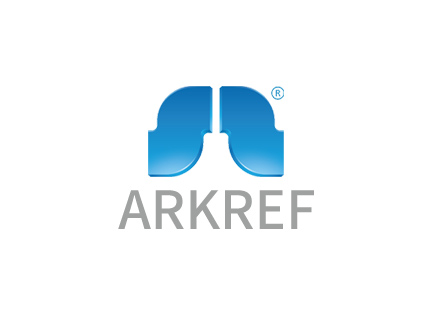How to Find the Ideal Tunnel Freezer for Your Fruits and Vegetables
Choosing the right tunnel freezer for fruits and vegetables is vital for maintaining product quality and achieving production goals. These freezers rapidly lower temperatures, preserving the nutritional value, color, and flavor of produce. They also improve efficiency by reducing energy consumption and minimizing waste. With automation and advanced cooling systems, you can streamline operations and cut costs by up to 50%.
📊 Did you know? The growing demand for frozen fruits and vegetables highlights the importance of preserving their integrity. Tunnel freezers ensure extended shelf life, appealing to health-conscious consumers.
Understanding Tunnel Freezers

What Is a Tunnel Freezer for Fruits and Vegetables?
A tunnel freezer is a specialized piece of equipment designed to freeze fruits and vegetables quickly and efficiently. It uses a continuous production line where products move through a long, insulated tunnel on a conveyor belt. This system exposes the produce to extremely low temperatures, often below -1 ºF, ensuring rapid freezing. The process helps maintain the natural flavor, texture, and nutrients of the food. Tunnel freezers are ideal for large-scale operations, as they support uninterrupted production and reduce wait times between batches.
Key features of a tunnel freezer include efficient freezing systems, uniform cooling, and energy-saving designs. These freezers also offer flexible configurations, allowing you to adjust freezing parameters based on the type of produce. For example, delicate fruits may require different settings than hardier vegetables. The equipment’s simple structure and durable materials, such as high-strength SUS304 mesh belts, ensure long service life and easy maintenance.
How Tunnel Freezers Work
Tunnel freezers operate by transporting fruits and vegetables through a controlled freezing environment. A conveyor belt moves the produce through the tunnel, where cold air or refrigerants circulate at high speeds. This rapid cooling minimizes the formation of large ice crystals, preserving the quality of the food. Precision-engineered airflow systems ensure even temperature distribution, which is critical for uniform freezing.
The freezing process involves exposing the produce to extremely low temperatures in a short time. This method locks in freshness and extends shelf life. Additionally, the adjustable belt speed and freezing time allow you to customize the process for different types of fruits and vegetables. By maintaining consistent temperatures, tunnel freezers help prevent bacterial growth, ensuring food safety.
Benefits of Using Tunnel Freezers
Tunnel freezers offer several advantages over traditional freezing methods. They provide rapid freezing, which reduces the formation of large ice crystals and preserves the texture and quality of the produce. This quick process also helps retain freshness, giving fruits and vegetables a longer shelf life. The controlled freezing environment minimizes bacterial growth, enhancing food safety.
Another key benefit is energy efficiency. Tunnel freezers are designed to consume less energy compared to other freezing methods, which can significantly lower operational costs. Their continuous production capability improves efficiency by reducing downtime between batches. Additionally, the equipment’s hygienic design and high-quality insulation ensure compliance with food safety standards.
Advantage | Description |
|---|---|
Rapid Freezing | Reduces the formation of large ice crystals, preserving texture and quality of the product. |
Freshness Retention | Quick freezing helps maintain freshness, leading to an extended shelf life for consumers. |
Enhanced Food Safety | Controlled freezing environment minimizes bacterial growth, improving food safety. |
Consistent Temperature Maintenance | Ensures food products are kept at safe temperatures throughout the freezing process. |
Energy Efficiency | Designed for energy efficiency, resulting in lower energy costs compared to traditional methods. |
By investing in a tunnel freezer, you can improve production efficiency, reduce costs, and ensure the highest quality for your frozen fruits and vegetables.
Key Factors to Choose the Right Freezer

Freezing Capacity
When selecting suitable freezing equipment, you must evaluate the freezing capacity that aligns with your production needs. The scale of your operations and the type of produce, such as fruits or vegetables, play a significant role. For instance, air-blast tunnel freezers are ideal for quick freezing large volumes while maintaining product quality. Use the table below to compare freezing capacities across different models:
Model | Compressor Capacity (KW) | Tunnel Size (m) | |
|---|---|---|---|
1 | 100 | 16 | 6×1.5×2.1 |
2 | 150 | 23 | 6.8×1.8×2.2 |
3 | 300 | 45 | 10×2.3×2.4 |
4 | 500 | 77 | 10×3×2.4 |
5 | 1000 | 155 | 17.1×3.5×2.3 |
6 | 1500 | 228 | 25×3.5×2.3 |
Energy Efficiency
Energy-efficient freezing technologies can significantly reduce operational costs. Modern tunnel freezers adapt cooling capacity based on product load, minimizing energy waste. Many also feature heat recovery systems that repurpose extracted heat, further lowering utility bills. These systems can cut production costs by up to 50%, making them a cost-effective choice for long-term use.
Space and Design Requirements
The correct freezer for your application must fit within your facility’s layout. Consider the dimensions of the freezer and ensure it integrates seamlessly with existing equipment. Compact designs, like air-blast tunnel freezers, save space while delivering high performance.
Cost and Long-Term Value
The cost of freezing equipment depends on size, features, and energy efficiency. While initial investment is important, focus on long-term value. High-quality freezers offer reliability, lower energy consumption, and reduced maintenance costs, ensuring profitability over time.
Maintenance Needs
Regular maintenance ensures optimal performance and longevity. Schedule cleaning, inspect conveyor belts, and monitor temperature controls. A well-maintained freezer minimizes downtime and operational costs, making it a reliable asset for your business.
How to Select Suitable Freezing Equipment for Your Needs
Matching Freezers to Product Type
Choosing the right freezer depends on the type of fruits and vegetables you process. Tunnel freezers work well for a wide range of produce, including:
Apples: Prepare by washing, peeling, and slicing into an antidarkening solution.
Berries: Select firm, ripe berries and wash them thoroughly.
Cherries: Pit tree-ripened cherries for optimal results.
Melons: Cut firm-fleshed melons into chunks before freezing.
Each product has unique freezing requirements. For example, individually quick freezing (IQF) is ideal for delicate items like berries, as it preserves their shape and texture. On the other hand, spiral freezers are better suited for fragile or irregularly shaped items, while tunnel freezers excel at freezing uniform products quickly and efficiently. Matching the freezer type to your product ensures high quality frozen products and operational efficiency.
Considering Production Scale
Your production scale plays a critical role in selecting freezing equipment. Tunnel freezers are designed for high-volume operations, making them perfect for freezing large quantities of fruits and vegetables. Use the table below to understand how production scale influences your choice:
Factor | Description |
|---|---|
High-volume production requires quick freezing for efficiency, making tunnel freezers ideal. | |
Product Type | Tunnel freezers are best for uniform products needing rapid freezing, while spiral freezers suit delicate items. |
Energy Efficiency | Tunnel freezers are more energy-efficient per unit due to rapid freezing processes. |
Budget | Tunnel freezers generally have lower initial costs and simpler maintenance compared to spiral freezers. |
For smaller-scale operations, spiral freezers may be more appropriate. However, if you aim to scale up production, tunnel freezers offer the flexibility and capacity to meet growing demands.
Evaluating Customization Options
Customization allows you to tailor freezing equipment to your specific needs. Tunnel freezers offer several options, such as:
Tunnel Length: Extend the tunnel to accommodate higher production volumes.
Safety and Efficiency Systems: Integrate advanced features for improved performance.
Expansion Options: Add components to increase output as your business grows.
Customizing your freezer maximizes production efficiency and ensures consistent freezing time for all products. Tailored designs also reduce downtime and enhance the freezing process, helping you maintain high-quality standards. For example, you can adjust conveyor widths or freezing parameters to suit different product types. By investing in customization, you future-proof your operations and achieve long-term success.
Choosing the right tunnel freezer for fruits and vegetables ensures efficiency, cost savings, and product quality. Evaluate factors like production volume, energy efficiency, and maintenance needs. Define your priorities and consult experts to match equipment to your goals. Create a checklist to compare models. Testing the freezing time of minutes for your products ensures the final product meets your standards.
See Also
Selecting Between Tunnel Freezers And Spiral Freezers
Essential Guide For Purchasing A Tunnel Freezer
Understanding The Major Advantages Of Tunnel Freezers

